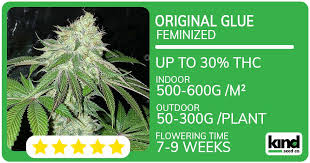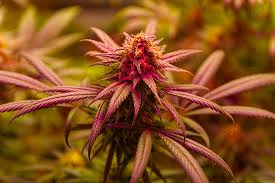
Everything You Should Know About Marijuana Seeds in New Hampshire
New Hampshire has made significant strides in terms of marijuana legalization over the years. Initially, laws around cannabis were strict, but attitudes are changing. As the demand for marijuana seeds in New Hampshire grows, it’s essential to understand the legal landscape, the types of seeds available, and the best practices for cultivation. For those interested in acquiring marijuana seeds in this state, check out marijuana seeds new hampshire https://kindseed.com/usa/marijuana-seeds-new-hampshire/ for reliable options.
The Legal Landscape of Cannabis in New Hampshire
New Hampshire has seen a gradual shift in its cannabis laws. As of now, recreational use is not fully legal, but medical marijuana is permitted under specific regulations. Patients with qualifying medical conditions can access cannabis legally through state-licensed dispensaries. Because of this regulatory framework, cannabis seeds are also becoming more accessible, but purchasing may need to be done with some caution.
Understanding Medical Cannabis Laws
With medical cannabis approved, patients are allowed to cultivate their own plants. Individuals can grow up to three plants in their home for personal medical use. However, different strains can yield varying results depending on the medical needs of the patient. Thus, it’s crucial to select the seeds wisely based on their specific requirements.
Types of Marijuana Seeds Available
For growers and enthusiasts in New Hampshire, several types of marijuana seeds are available, catering to different preferences and cultivation skill levels. The main categories include:
1. Feminized Seeds
Feminized seeds are designed to produce only female plants. These plants are responsible for producing the buds that are typically harvested for potency. Feminized seeds are an excellent choice for beginner growers since they eliminate the need to identify and remove male plants.

2. Autoflowering Seeds
Autoflowering seeds transition from vegetative growth to flowering based on age rather than light cycles. This makes them perfect for growers who want a quick turnaround and is ideal for outdoor cultivation in New Hampshire’s varying climate. They typically have a shorter growth period, allowing for multiple harvests within a single season.
3. Regular Seeds
Regular seeds can produce both male and female plants. While this might seem intimidating for beginner growers, having regular seeds can help in breeding and creating new strains. However, it’s essential to be able to identify male plants to ensure a quality harvest.
Where to Buy Marijuana Seeds in New Hampshire
As cannabis laws continue to evolve, various online retailers and seed banks have emerged, offering a wide array of marijuana seeds for those in New Hampshire. It’s essential to buy from reputable sources to ensure quality and compliance with any local regulations. Local dispensaries and seed banks may also have limited selections available for medical patients looking to grow their therapeutic cannabis.
When purchasing seeds, look for those that offer a variety of strains suited for both indoor and outdoor cultivation, as well as strains that cater to the specific needs of medical users.
Best Practices for Growing Marijuana in New Hampshire
Growing marijuana successfully requires understanding the local climate and conditions in New Hampshire. The state experiences four distinct seasons, and growers must account for these when planning their cultivation cycles.
1. Timing is Everything
For outdoor cultivation, it’s recommended to plant seeds after the last frost in spring—usually around late May. Depending on the strain, growers should plan for an early harvest before autumn sets in.

2. Indoor Versus Outdoor Growing
Indoor growing provides more control over the environment, including temperature, humidity, and light cycles. This can lead to a higher yield and potentially superior quality buds. However, outdoor growing is entirely possible and can be cost-effective, especially for those with limited space or resources.
3. Feeding and Watering
Research the specific needs of the marijuana strain you are growing, as some strains may require unique nutrients and care. Adequate watering, especially in the flowering stage, is also crucial in producing healthy, high-quality buds.
Common Challenges of Cannabis Cultivation in New Hampshire
While growing marijuana can be rewarding, it also comes with its share of challenges. Here are a few common issues faced by growers in New Hampshire:
1. Pests and Diseases
Pests such as aphids and spider mites can become significant problems. Implementing pest control measures, such as natural insecticides, can help protect your plants. Additionally, ensuring proper air circulation and humidity levels can stave off diseases.
2. Climate Variability
New Hampshire’s weather can be unpredictable. Sudden cold snaps, rain, or drought can all affect growth. Growers should plan for contingencies, such as using protective coverings in case of severe weather or being prepared for irrigation during dry spells.
3. Legal Risks
Since cannabis laws continue to evolve, growers must stay informed on current regulations to avoid legal repercussions. Joining local cannabis groups or communities can help keep you updated on developments.
Conclusion
As the landscape for cannabis continues to evolve in New Hampshire, enthusiasts and medical users alike will find opportunities to cultivate their own marijuana plants. By understanding the laws, types of seeds available, and best growing practices, anyone can embark on their cultivation journey. Remember to start with reliable sources for seeds and remain informed about local regulations to ensure a successful experience in growing marijuana in New Hampshire.